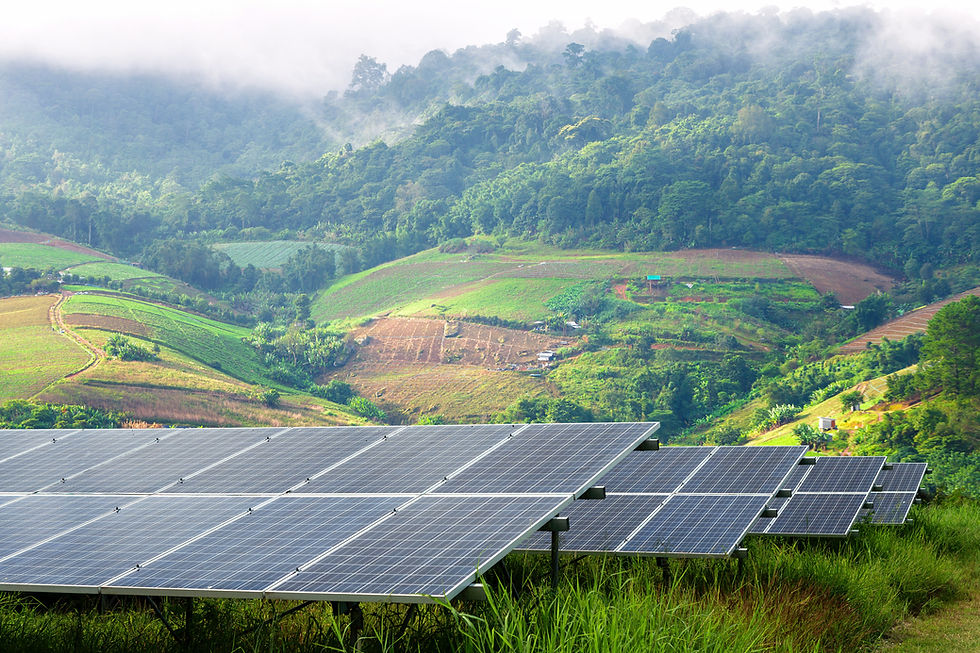Case Study: Biomass to Electricity Project
- Jennifer Rose
- Jan 24, 2024
- 2 min read
Biomass to Electricity Project: A Sustainable Solution for Renewable Energy In the quest for a more sustainable future, renewable energy sources have become increasingly important. One such source is biomass, which involves converting organic materials into electricity. Amandla Resources, a leading renewable energy consulting business, recently completed a successful Biomass to Electricity project, showcasing their expertise in the field. This case study serves as an excellent example of their ability to provide cost-effective and reliable renewable energy solutions. The Biomass to Electricity project involved the conversion of biomass materials, such as agricultural waste or wood chips, into electricity through a sustainable and efficient process. By harnessing the power of biomass, Amandla Resources was able to offer their client a reliable and cost-effective source of renewable energy. The success of this project highlights the innovative solutions that Amandla Resources can design and implement. By reducing dependency on traditional energy sources, they contribute to a more sustainable future. This project also demonstrates their commitment to sustainability and innovation, which are at the core of their business. So, how does biomass to electricity work? Biomass materials, such as agricultural waste or wood chips, are collected and processed. They are then burned in a specialized biomass power plant, which generates steam. This steam is used to turn a turbine, which in turn produces electricity. The process is efficient and environmentally friendly, as it utilizes organic waste that would otherwise be discarded. The benefits of biomass to electricity are numerous. Firstly, it provides a reliable source of renewable energy. Unlike solar or wind power, biomass can generate electricity consistently, 24/7. This is particularly important for industries that require a constant and uninterrupted power supply. Secondly, biomass to electricity reduces dependency on traditional energy sources, such as fossil fuels. By utilizing organic waste, it helps to mitigate the environmental impact associated with these conventional energy sources. It also contributes to the reduction of greenhouse gas emissions, as biomass is considered carbon-neutral. Lastly, biomass to electricity offers economic benefits. It provides an opportunity for local communities to generate income from their agricultural waste or wood chips. It also creates jobs in the biomass industry, contributing to local economic development. Amandla Resources' successful Biomass to Electricity project is a testament to their expertise in the renewable energy sector. With their team of experienced professionals and their focus on sustainability and innovation, they continue to lead the way in the renewable energy consulting industry. If you're considering integrating renewable energy technologies into your operations, Amandla Resources can provide expert guidance and solutions. They offer a wide range of consulting services, including finance, carbon credit applications, investment partners, equipment suppliers, and introductions to specialist organizations. Their experience and expertise can help you navigate the complex world of renewable energy and make informed decisions for a more sustainable future. In conclusion, the Biomass to Electricity project completed by Amandla Resources showcases the potential of biomass as a reliable and cost-effective source of renewable energy. By harnessing the power of organic waste, they are contributing to a more sustainable future and reducing dependency on traditional energy sources. If you're looking for innovative renewable energy solutions, Amandla Resources is the partner you need.



Comments